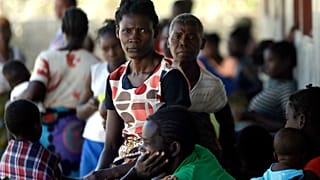AIDS
UN chief Ban Ki Moon has said that the global progress in fighting AIDS could be lost because prevention programmes are suffering from a lack of leadership, accountability and funding.
Moon warned that the AIDS epidemic could be prolonged indefinitely if urgent action is not implemented within the next five years. He urged all partners to concentrate their efforts to increase and front-load investments to ensure that the global AIDS epidemic is ended as a public health threat by 2030.
According to a new report released by the United Nations, the progress in tackling the epidemic has so far been “inspiring,” with a 42 percent decline in AIDS-related deaths since a peak in 2004.
New #UNSG report shows that urgent action is needed to end #AIDS by 2030: https://t.co/QINhUibm11 #HLM2016AIDS pic.twitter.com/4eIN6XTPVA
— UNAIDS (@UNAIDS) May 6, 2016
As a result, life expectancy in countries most affected by HIV has sharply risen.
New infections have fallen only 8% between 2010 and 2014 and continue to rise in Eastern Europe, Central Asia, the Middle East, North Africa and in the Asia-Pacific region. Some 22 million people do not yet have access to treatment.













01:13
United Nations decries crackdown on opposition ahead of Ugandan elections
Go to video
Protesters in Haiti take over Saint-Marc city hall demanding protection from gangs
01:04
DRC: MONUSCO head Bintou Keita steps down early
01:09
UNAIDS urges global unity in World AIDS Day call to action
02:00
UN says food distribution in Sudan improving but areas remain cut off
Go to video
UK Prime Minister calls for 'global pressure to stop the slaughter' in Sudan